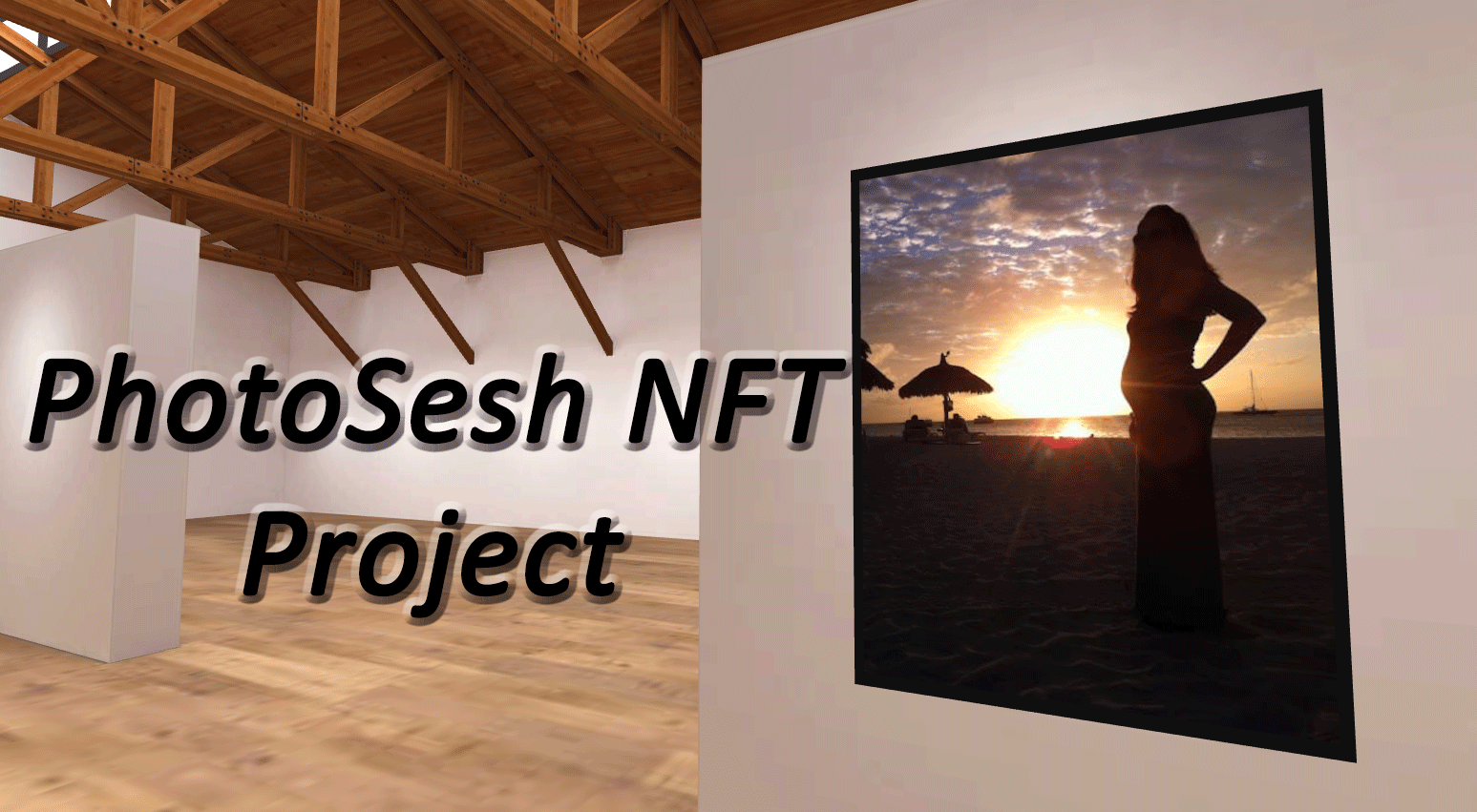In recent years, the use of non-fungible tokens (NFTs) has grown exponentially in popularity. NFTs are digital assets that are unique and cannot be replaced. They are often used to represent items of value in the digital world, such as art, collectibles, and even experiences. Those examples are the latest buzz. But it’s important to realize that NFTs are not a fad, they are here to stay. Many are distracted on whether or not speculators will profit with in this space, but that is a separate topic. NFTs are allowing us to be much more functional and efficient in journaling and documenting on public ledgers without a centralized authority to oversee it. It will be an important aspect of our world to help permanently document almost anything whether the goods are physical or virtual. It will help us prove authenticity, prove ownership, and prove its scarcity all on the secure Ethereum blockchain.
Now, PhotoSesh is taking things one step further by working on a project to help tokenize photographers' work affordably and at scale. By doing so, we hope to provide a new level of security and ownership for photographers, as well as open up new opportunities for marketing and monetization. Here's a closer look at why we think NFTs are so important for photography.
NFTs Offer a New Level of Security and Ownership
For starters, NFTs offer a new level of security and ownership for photographers. When you tokenize your work, you create a permanent record of it on the blockchain. This means that your photos can never be deleted or altered without your permission. Additionally, blockchain technology makes it easy to track who owns each photo and where it's been shared. This can help prevent copyright infringement and protect your work from being stolen or misused.
An NFT gallery example where photographers can showcase their work on the Ethereum blockchain.
NFTs Also Open Up New Opportunities for Marketing and Monetization
In addition to offering greater security and ownership, NFTs also open up new opportunities for marketing and monetization. For example, with an NFT-based platform like PhotoSesh, photographers can choose to sell their photos as single-use licenses or as unlimited-use subscriptions. This gives buyers greater flexibility when it comes to budgeting for photography services—and it provides photographers with a steadier stream of income. You can even create a virtual gallery where viewers can explore your work.
An example of a photo taken by a PhotoSesh photographer that was minted and tokenized on the Ethereum blockchain.
Furthermore, NFTs make it possible to embed links, metadata, and other types of information into photos. This opens up new opportunities for marketing campaigns and other types of interaction with buyers. For example, a photographer could embed a link to their website or portfolio in an NFT-enabled photo—or they could include information about the location where the photo was taken, making it easier for buyers to find more photos from the same shoot.
Example of a Use Case…
Here’s One of a Billion Unique Examples of How You Can Monetize Your NFTs
There are really unlimited use cases and this particular example does not rely on the value of the “NFT art” going up or down. This one is an experience. Imagine you would sell a 5 year, 10 year or even a lifetime annual subscription for headshots. But in this case it would be a transferrable digital voucher in the form of an NFT. Sure you can incorporate a cool picture inthe NFT as well. But let’s add some details into the token: “Whoever owns this particular XYZ NFT on Jan 1st of each year will get a free headshot redeemable in the month of January.” How would you structure it and price it? That depends on you. Remember to price it to make it worth your time and the duration of your package. You will always know who owns it. It can’t be faked. And the more famous you become as the world’s best headshot photographer, the higher this NFT will trade at. ; ) Keep in mind, every time someone sells or transfers your token to another person, you can also receive a 10% royalty. This headshot package might not be your top idea for an NFT, but hopefully the example helps us explore where we can go with NFTs both as art, a service, a digital good, a contract, or an experience.
Details, description, meta data, and transaction history will be available when a viewer clicks on your art.
All in all, we believe that NFTs have a bright future in photography—and we're excited to help tokenize photographers' work affordably and at scale. If you're a photographer interested in learning more about our project, please reach out—we'd love to chat! Email us at info@photosesh.com.
Christopher Seshadri
PhotoSesh CEO, Husband, Father, Coach





